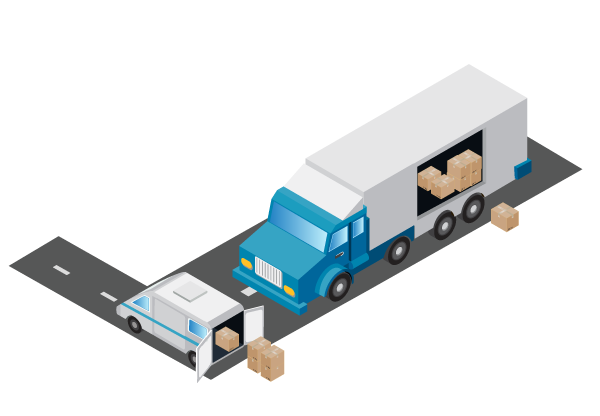Like every industry, the freight world is filled with jargon that can seem overwhelming to the uninitiated.
In this section, we will go over the most common words and phrases you may come across in your shipping adventures.
- Shipper: The person shipping the cargo.
- Shipper: The person receiving the cargo.
- Carrier: The party (company) transporting the cargo.
- Bill of Lading (BOL): A legally binding document between the shipper and the carrier, detailing the shipment information.
- Business to Business (B2B): Business-to-business shipping is the most common type of freight shipping. It means that both the pickup and delivery locations are in commercial areas.
- Dock-to-Dock (D2D): The standard in freight shipping is dock-to-dock. That means that both parties (shipper and receiver) have docks at their locations for loading and unloading.
- Limited Access: Any location that is not a standard business with a dock can be considered limited access. Churches, hospitals, military bases, locations with gates as well as many other location types are considered limited access. Customs Invoice: A document containing all of the information about your shipment including the piece count and the value per item. Any shipment crossing the border cannot be cleared for crossing without a customs invoice.
- Shipping Invoice: A final invoice issued by a carrier or freight broker for services rendered. If all of the information about your shipment matched the information provided during quoting, the two amounts should match.
- Pallet Jack: An essential tool in the freight shipping industry. It is essentially a mini forklift used to move cargo with ease at ground level. Most trucks have a pallet jack on them to easily move freight inside the truck as well.

